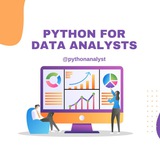💻 Python Programming Roadmap
🔹 Stage 1: Python Basics (Syntax, Variables, Data Types)
🔹 Stage 2: Control Flow (if/else, loops)
🔹 Stage 3: Functions & Modules
🔹 Stage 4: Data Structures (Lists, Tuples, Sets, Dicts)
🔹 Stage 5: File Handling (Read/Write, CSV, JSON)
🔹 Stage 6: Error Handling (try/except, custom exceptions)
🔹 Stage 7: Object-Oriented Programming (Classes, Inheritance)
🔹 Stage 8: Standard Libraries (os, datetime, math)
🔹 Stage 9: Virtual Environments & pip package management
🔹 Stage 10: Working with APIs (Requests, JSON data)
🔹 Stage 11: Web Development Basics (Flask/Django)
🔹 Stage 12: Databases (SQLite, PostgreSQL, SQLAlchemy ORM)
🔹 Stage 13: Testing (unittest, pytest frameworks)
🔹 Stage 14: Version Control with Git & GitHub
🔹 Stage 15: Package Development (setup.py, publishing on PyPI)
🔹 Stage 16: Data Analysis (Pandas, NumPy libraries)
🔹 Stage 17: Data Visualization (Matplotlib, Seaborn)
🔹 Stage 18: Web Scraping (BeautifulSoup, Selenium)
🔹 Stage 19: Automation & Scripting projects
🔹 Stage 20: Advanced Topics (AsyncIO, Type Hints, Design Patterns)
💡 Tip: Master one stage before moving to the next. Build mini-projects to solidify your learning.
You can find detailed explanation here: 👇 https://whatsapp.com/channel/0029VbBDoisBvvscrno41d1l
Double Tap ♥️ For More ✅
🔹 Stage 1: Python Basics (Syntax, Variables, Data Types)
🔹 Stage 2: Control Flow (if/else, loops)
🔹 Stage 3: Functions & Modules
🔹 Stage 4: Data Structures (Lists, Tuples, Sets, Dicts)
🔹 Stage 5: File Handling (Read/Write, CSV, JSON)
🔹 Stage 6: Error Handling (try/except, custom exceptions)
🔹 Stage 7: Object-Oriented Programming (Classes, Inheritance)
🔹 Stage 8: Standard Libraries (os, datetime, math)
🔹 Stage 9: Virtual Environments & pip package management
🔹 Stage 10: Working with APIs (Requests, JSON data)
🔹 Stage 11: Web Development Basics (Flask/Django)
🔹 Stage 12: Databases (SQLite, PostgreSQL, SQLAlchemy ORM)
🔹 Stage 13: Testing (unittest, pytest frameworks)
🔹 Stage 14: Version Control with Git & GitHub
🔹 Stage 15: Package Development (setup.py, publishing on PyPI)
🔹 Stage 16: Data Analysis (Pandas, NumPy libraries)
🔹 Stage 17: Data Visualization (Matplotlib, Seaborn)
🔹 Stage 18: Web Scraping (BeautifulSoup, Selenium)
🔹 Stage 19: Automation & Scripting projects
🔹 Stage 20: Advanced Topics (AsyncIO, Type Hints, Design Patterns)
💡 Tip: Master one stage before moving to the next. Build mini-projects to solidify your learning.
You can find detailed explanation here: 👇 https://whatsapp.com/channel/0029VbBDoisBvvscrno41d1l
Double Tap ♥️ For More ✅
❤10
✅ How Much Python is Enough to Crack a Data Analyst Interview? 🐍📊
Python is a must-have for data analyst roles in 2025—interviewers expect you to handle data cleaning, analysis, and basic viz with it. You don't need to be an expert in ML or advanced scripting; focus on practical skills to process and interpret data efficiently. Based on current trends, here's what gets you interview-ready:
📌 Basic Syntax & Data Types
⦁ Variables, strings, integers, floats
⦁ Lists, tuples, dictionaries, sets
🔁 Conditions & Loops
⦁ if, elif, else
⦁ for and while loops
🧰 Functions & Scope
⦁ def, parameters, return values
⦁ Lambda functions, *args, **kwargs
📦 Pandas Foundation
⦁ DataFrame, Series
⦁ read_csv(), head(), info(), describe()
⦁ Filtering, sorting, indexing
🧮 Data Analysis
⦁ groupby(), agg(), pivot_table()
⦁ Handling missing values: isnull(), fillna()
⦁ Duplicates & outliers
📊 Visualization
⦁ matplotlib.pyplot & seaborn
⦁ Line, bar, scatter, histogram
⦁ Styling and labeling charts
🗃️ Working with Files
⦁ Reading/writing CSV, Excel
⦁ JSON basics
⦁ Using with open() for text files
📅 Date & Time
⦁ datetime, pd.to_datetime()
⦁ Extracting day, month, year
⦁ Time-based filtering
✅ Must-Have Strengths:
⦁ Writing clean, readable Python code
⦁ Analyzing DataFrames confidently
⦁ Explaining logic behind analysis
⦁ Connecting analysis to business goals
Aim for 2-3 months of consistent practice (20-30 hours/week) on platforms like DataCamp or LeetCode. Pair it with SQL and Excel for a strong edge—many jobs test Python via coding challenges on datasets.
Python Resources: https://whatsapp.com/channel/0029VaiM08SDuMRaGKd9Wv0L
💬 Tap ❤️ for more!
Python is a must-have for data analyst roles in 2025—interviewers expect you to handle data cleaning, analysis, and basic viz with it. You don't need to be an expert in ML or advanced scripting; focus on practical skills to process and interpret data efficiently. Based on current trends, here's what gets you interview-ready:
📌 Basic Syntax & Data Types
⦁ Variables, strings, integers, floats
⦁ Lists, tuples, dictionaries, sets
🔁 Conditions & Loops
⦁ if, elif, else
⦁ for and while loops
🧰 Functions & Scope
⦁ def, parameters, return values
⦁ Lambda functions, *args, **kwargs
📦 Pandas Foundation
⦁ DataFrame, Series
⦁ read_csv(), head(), info(), describe()
⦁ Filtering, sorting, indexing
🧮 Data Analysis
⦁ groupby(), agg(), pivot_table()
⦁ Handling missing values: isnull(), fillna()
⦁ Duplicates & outliers
📊 Visualization
⦁ matplotlib.pyplot & seaborn
⦁ Line, bar, scatter, histogram
⦁ Styling and labeling charts
🗃️ Working with Files
⦁ Reading/writing CSV, Excel
⦁ JSON basics
⦁ Using with open() for text files
📅 Date & Time
⦁ datetime, pd.to_datetime()
⦁ Extracting day, month, year
⦁ Time-based filtering
✅ Must-Have Strengths:
⦁ Writing clean, readable Python code
⦁ Analyzing DataFrames confidently
⦁ Explaining logic behind analysis
⦁ Connecting analysis to business goals
Aim for 2-3 months of consistent practice (20-30 hours/week) on platforms like DataCamp or LeetCode. Pair it with SQL and Excel for a strong edge—many jobs test Python via coding challenges on datasets.
Python Resources: https://whatsapp.com/channel/0029VaiM08SDuMRaGKd9Wv0L
💬 Tap ❤️ for more!
❤8👏2👍1🥰1
Python for Data Analysts
Pandas Cheatsheet .pdf
🚀 Pandas Cheatsheet – Master Data Analysis Like a Pro! 📊
